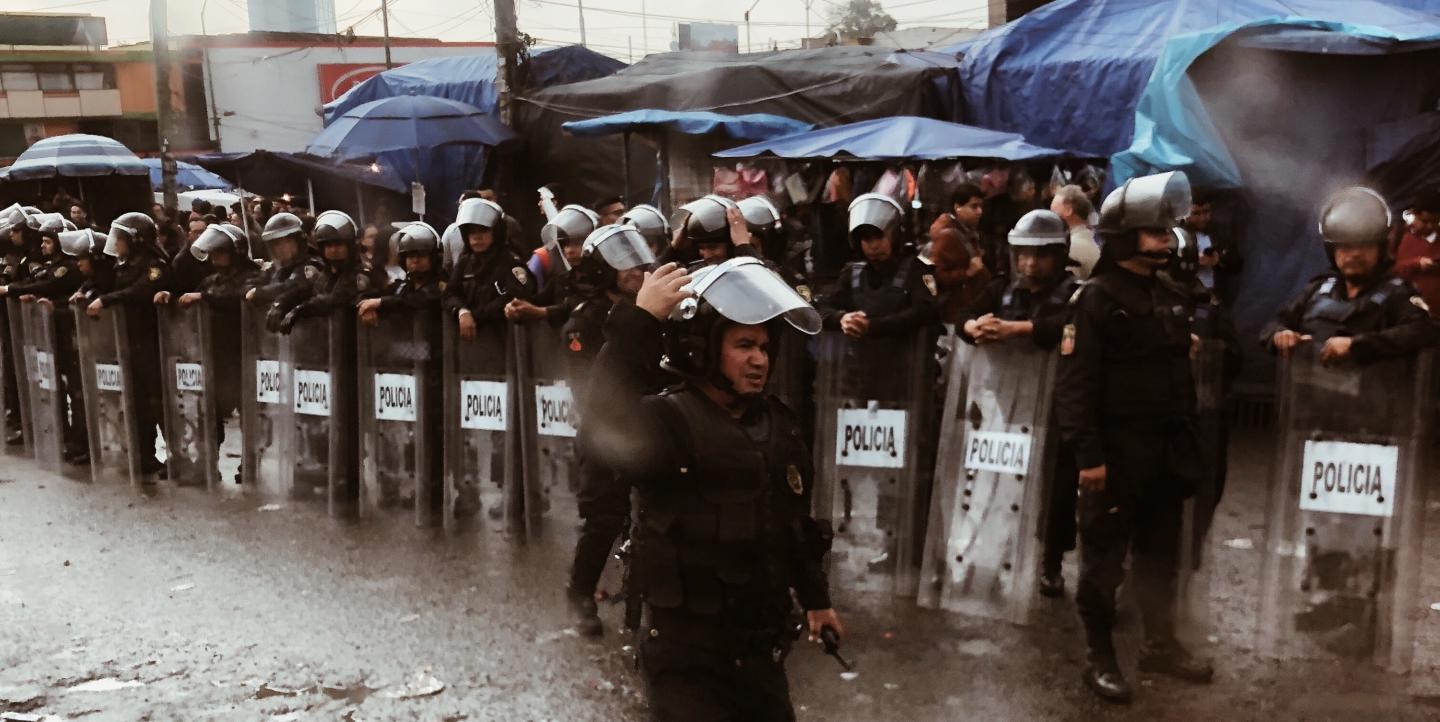In May 2017, a group of around 100 armed individuals robbed seven journalists in the Mexican state of Guerrero, making off with their cameras, cell phones, computers, money and car. No longer able to carry out the reporting they had traveled to the region for, and with no story as a result, the freelance journalists lost out on the revenue they may have earned from media outlets.
Following the robbery, journalist Andalusia Knoll Soloff founded Frontline Freelance Mexico (FFM) in an effort to better organize freelance reporters in the country and defend their rights. Inspired by the international organization Frontline Freelance Register, FFM today has 250 members comprising journalists, documentary filmmakers, fixers, cartoonists, radio professionals, editors, designers and sound engineers.
"Many of our colleagues in the media industry run all sorts of risks and are unprotected, but freelance journalists are even more unprotected. We have no media organization to back us up, no benefits, no fixed salary," said journalist Analy Nuño, general coordinator of FFM.
Due to massive layoffs in the media industry, and hoping to diversify their income and enjoy more editorial flexibility, journalists in the country are increasingly turning to freelancing, FFM’s website explains. But today, said Nuño, Mexican freelancers work in highly precarious conditions.
As an example, Nuño highlighted the case of Moisés Sánchez, a journalist who was murdered in the state of Veracruz in January 2015. "We were alerted that Moisés was paid 50 Mexican pesos per article [between $2 and $3]. That is the level of precariousness we are talking about. Some of our colleagues don’t even recognize themselves as freelance journalists; and since they don’t have a media outlet in their area, they upload their articles to their own websites, and some media outlets buy their work for 50 pesos," he said.
Compounding the instability, corruption and drug trafficking creates high levels of insecurity for freelance reporters. "Across the country, every day there can be shootings and murders, and we’re in the middle of that,” said Nuño. “We want to decentralize the issue [of protection for reporters] because outside the Mexico City bubble is where the majority of our colleagues are at risk."
Mexico, in fact, is one of the most dangerous countries in the world to be a journalist: since 2000, more than 150 journalists have been murdered in connection with their reporting in the country, according to freedom of expression advocacy group Article 19.
One of FFM's primary goals is to bring visibility to and recognize the important work freelancers undertake. One such effort involves highlighting the value brought by fixers — local journalists who advise, inform and accompany other, often foreign, journalists reporting in their communities.
In the workshops FFM offers for fixers, explained Nuño, FFM starts by asking, “Who is a fixer here?” Usually, only one or two people raise their hands, but after the FFM team explains what a fixer is, around 90% of the participants raise their hands. "They realized they did the work and never got paid," he said.
Some colleagues are organizing themselves, Nuño noted. In southern Mexico, for example, freelancers agreed to charge a minimum of $150 per day for their services, and varying based on reporting topic and location. Journalists who travel to the mountains to cover organized crime, for instance, experience a higher level of risk and may charge more, as a result.
FFM developed a new project, “Fixing Journalism," with a grant from Global Initiative Against Transnational Organized Crime, which seeks to better value and recognize the work of fixers. The initiative offers training on how fixers can get compensated fairly, conduct their reporting, safeguard their physical safety and that of the teams that they work with, transition from fixer to producer, and negotiate credit and recognition once their projects are published or win an award.
Protections for journalists at the federal and state levels in Mexico have failed, Nuño lamented. Solutions like those brought forth by FFM are vital, as a result. "The situation in Mexico forces us to create these networks of support and trust, so that we can respond faster and in a more organized way to situations of insecurity and violence," he said.
Photo by Eddi Aguirre on Unsplash.
This article was originally published by IJNet in Spanish. It was translated to English by journalist Natalie Van Hoozer.


